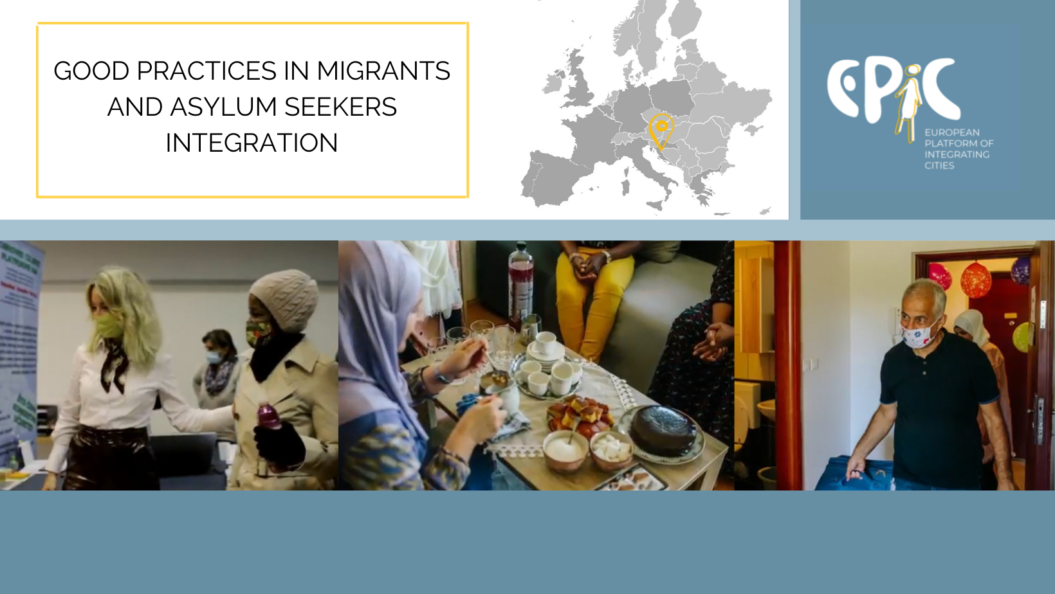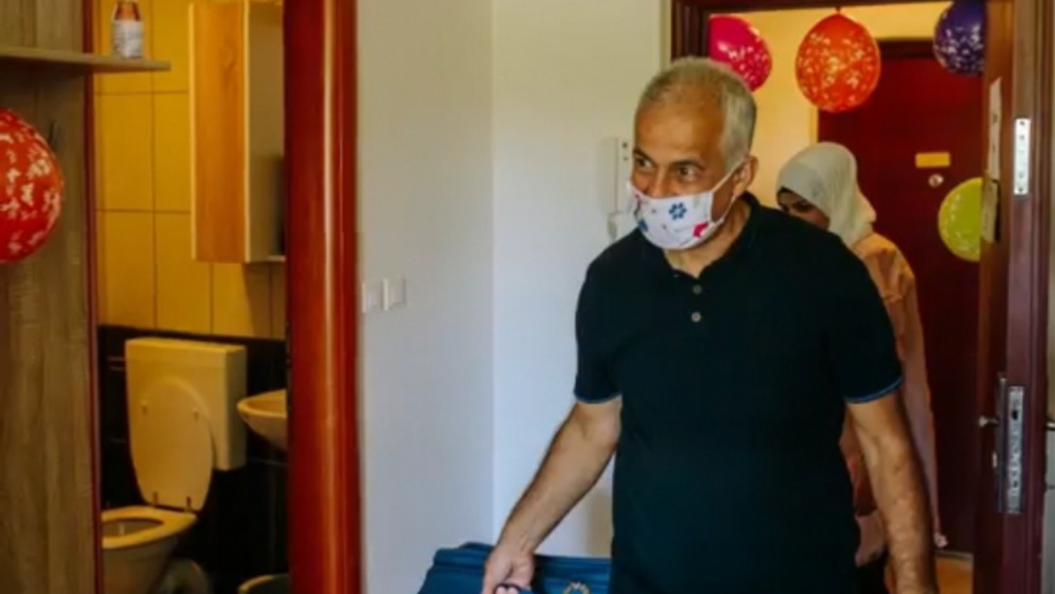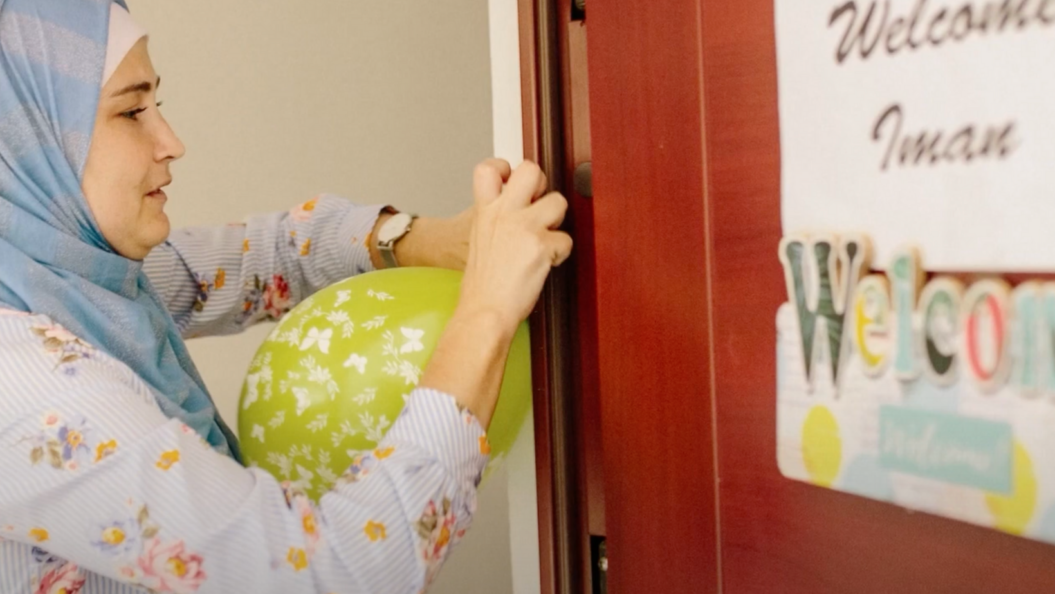
GOOD PRACTICES IN SISAK
WELCOMING NEW NEIGHBOURS AND WORKING FOR AN INTERCULTURAL SOCIETY, BY THE MUNICIPALITY OF SISAK AND JRS CROATIA
SCROLL DOWN TO WATCH THE VIDEO
There are more people on the move today than ever before. They are in search of peace, safety and a better place for living and working. Since 2015, around 800,000 migrants have travelled through the territory of Croatia, of which 12,259 applied for international protection and , 018 received it. After the capital Zagreb, the larger numer of people with international protection in Croatia are situated in Sisak, a multicultural city located in the centre of the country.
Local authorities in Sisak are trying their best to make sure migrant arrivals are feeling welcomed in the town. Once international protection is granted to the person, he/she will be eligible for housing that frees the person from living in the asylum centre. The Central State Office for Reconstruction and Housing will provide the migrant and his/her family with fully a refurbished flat. In 2021, 20 housing units were prepared and successfully rented out with the right to live free of charge for two years.

The flats given to migrants are owned by the government and are usually situated in residential blocs. Private flats or houses are a rare case, although they too have been provided. For this project, the Central State Office for Reconstruction and Housing is using the funds by the European Union Asylum, Migration and Integration Fund.
However, the most astonishing aspect about the housing project is the effort and care the authorities are putting in preparing the flats for the migrant lodgers. The Centre for Cultural Dialogue (CCD) is working in close cooperation with the authorities to facilitate the moving project entitled “New Neighbours”. Azra Mulabdič, Head of Integration at CCD explains: “Once we receive the official information regarding the time and location, we notify the person and start organising the move. We book transport and get the flat ready. It usually takes no more than a week. Even though the flats are equipped with essential commodities, on the day of moving CCD adds some little welcoming touches, so the person moving in could feel and sense sympathy. These details are, for instance, a cake, light lunch, little gifts etc. Our clients have said that they will never forget their first day in Sisak because the little gestures made them feel very good after a long time. Such positive feedback encourages us at CCD to enrich the moving process and provide a better service. It also reminds us the human level, how little is really needed to make someone happy”.

After the moving and preliminary administrative steps are completed, the integration process continues with learning the Croatian language.
The Open Public University of Zagreb together with JRS Croatia (Jesuit Refugee Service, partners in the EPIC project) have been actively teaching Croatian to more than 100 students over the last two years. Language training was combined with vocational training ensuring the migrants also have professional skills when entering to the labour market. Some 40 people were trained to fulfil labour deficit for jobs such as chefs, painters, hairdressers and computer operators. Janko Gredelj, JRS Croatia Office Manager notes: “Croatian language can be a barrier given its complexity. We therefore put it first in all our projects. Each person must attend at least 80 to 100 hours of language classes with an indication of the occupation he/she has been re-trained for. Hence, we are providing vocational language along with vocational training.
Yunus Emre Ozudogru, one of the participants in the “New Neighbour” project talks about his experience with language learning: “I think it is very important to learn Croatian so that we can adapt quickly. Croatian is a little hard for me, grammar is not easy. I am still not very good, but I am trying to learn new words every day. Communicating with local people also helps. I have a neighbour with whom I have coffee, I also have a Croatian friend to talk about football”.
In Sisak there are also activities aimed to promote intercultural communication in local community. For instance, the game centre Let’s Go Together is aimed for families with children to come and spend time together and socialise with others. There is a play area for children in the centre and they can borrow toys from the toy library to bring home with them for a week or two. The parents can participate in seminars hosted by specialists discussing parenting, health and training opportunities. The centre is open twice a week and welcomes visitors with any background.
The City Society of Red Cross (CSRC Sisak) together with the Ministry of Interior and the UNHCR, conducts projects aimed for migrants both with and without international protection. There are programmes providing psychological support to migrants, accompanying them to visit medical centres, assisting with documentation and communication to deal with relevant authorities, and finally help with employment and social care rights.
All the organisations involved in the migrant support system in Sisak, share a common goal: working for a better, well-integrated, inter-religious and intercultural society.
Ilvana Crnkić, Cultural Mediator at CCD concludes:” Every day we do various activities with our “new neighbours”. Each activity is a step closer to successful integration, to share mutual life stories and witness the strengthening of friendship, humanity, assistance, the meaning of good words, and the strength of embraces full of joy.”